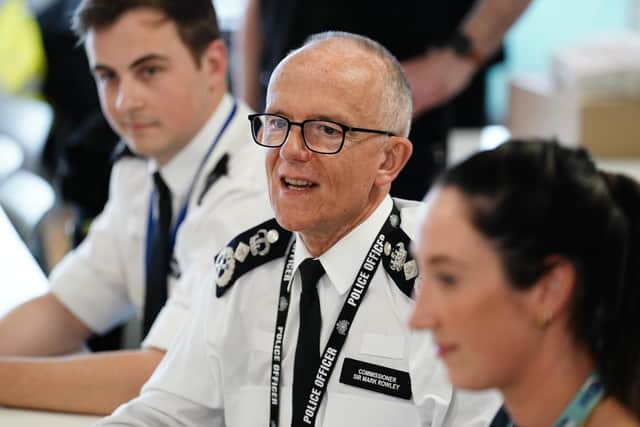What the new Met can teach Scotland about protecting officers and the public
I have a sneaking admiration for the new Commissioner of The Metropolitan Police, Sir Mark Rowley . Not only did he come out of a comfortable retirement to take on the hottest job in British policing, he now seems determined to confront some of its oldest and thorniest problems.
He will know that few of his predecessors have left the post at the time of their own choosing yet despite this, or perhaps because of it, he is refusing to dodge any of the big issues.
Advertisement
Hide AdAdvertisement
Hide AdHis latest bold move is to direct that his 29,000 Officers will not attend calls which obviously relate to people suffering from episodes of mental illness. It’s an age old problem and the police service has always been regarded as the 24/7 emergency service of last resort.


The scale of this work is enormous. Recently, Police Scotland revealed only a small minority of calls it attended were actually to do with crime. Many of the rest concerned people suffering from a mental health episode .
Sir Mark Rowley is right of course. The police service faces huge pressures with diminishing resources and it cannot continue to pick up the work of other services. Yet, as the Commissioner will know, refusing to attend all calls relating to mental health incidents is much easier said than done.
Dealing with people with mental illness has always been an issue for policing and it grew significantly after care in the community came along . In a naked cost cutting exercise, many psychiatric units were closed and replacement community services, always chronically underfunded, never coped. The rise in mental health incidents on our streets began and the gap in mental health services has grown ever since.
In the real world, many calls are not initially identified as relating to mental illness. Even when they are, police cannot refuse to attend calls where there is violence or a danger to life . Such incidents can rapidly escalate to extreme violence, use of alcohol or mind altering substances make matters worse and while all police officers receive specialist training, they do not have the expertise or equipment to deal with such complex cases.
And there is another problem. As incidents involving police and those suffering from mental illness grow, so does criticism of police action. Some of this is cynical and some genuine but, whichever, it is often difficult to judge the proportionality of the police response.
This is why body worn cameras are now essential for operational emergency service workers. Now widely issued throughout the UK, they serve to gather evidence, protect against false accusations and regulate the behaviour of the wearer. Body worn cameras are now as essential a piece of police equipment as a whistle and notebook once were.
Yet despite this, most operational police officers in Scotland are not equipped with body cameras and there is no budget to fund them. The Scottish Police Federation has raised this as a serious safety issue .
Advertisement
Hide AdAdvertisement
Hide AdThey are right to do so. Front line emergency service workers must be properly equipped for their increasingly hazardous job. Body worn cameras will protect the public and police alike .
Tom Wood is a writer & former Police Officer